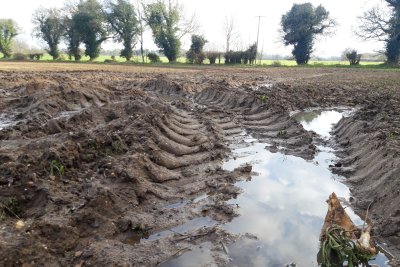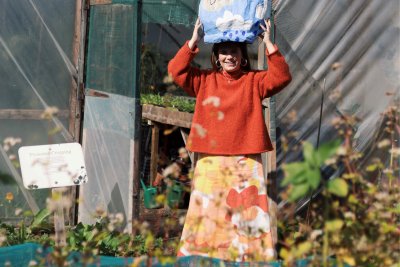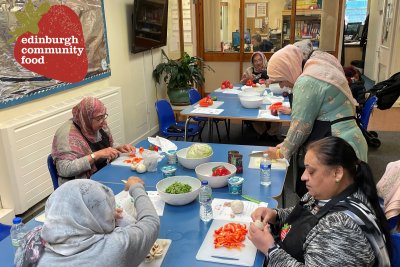Is UK policy a friend or foe for agroecology? Fringe Farming as a case study
Policies are undeniably important to the fate of UK farming both as positive and negative influences, but how policies can be used to support better food systems is often difficult to navigate. Fringe Farming, as a project that is growing the nascent movement for peri-urban agroecology, can give us insight into the relationship between policies and fairer, more sustainable food production.

Policy and other top-down forces are generally well organised and support mainstream economic activities and thinking. On the other hand, agroecology as a fringe food and farming movement in the UK is largely made up of a relatively small group of pioneering farmers, advisors and campaigners that are making microscale changes, whilst aiming for large scale and system change. Even being at notably large gatherings, like the Oxford Real Farming Conference, I have witnessed how much more needs to be done to strengthen the network and galvanise more momentum to create anything close to systems change.
It has been my task to contribute to both coordinating disparate efforts and linking policy makers and influencers to grassroots action. As Officer for the Fringe Farming project at Sustain, I collaborate with five city food partnerships (Bristol, Cardiff, Glasgow, London and Sheffield) and two national partners (the Landworkers’ Alliance and Shared Assets). What we call ‘fringe farming’ is smaller-scale, highly productive, agroecological market gardening (largely fruit and vegetable production) in peri-urban spaces, i.e. at city and large town fringes.
Examples of policy-targeted events that have been organised include a roundtable at Westminster in which we had both Tory and Labour Members of Parliament, House of Lords Peers and a Welsh Member of the Senedd in conversation with project partners and fringe farmers. Fringe farming was enthusiastically accepted across the board. We were nonetheless aware that verbal recognition does always translate to policy changes, and certainly not quickly, even in a room of influential parliamentarians.
At a more local level, our city partners engage with their local and regonal authorities such as by shaping food strategies and procuring public land for food growing. An example of this was a farm tour of a fringe farm, OrganicLea, for London borough councils. This brought council officers face-to-face with the multiple ecological and community and educational benefits that comes with farming with nature and enterprise stacking when fringe farming.
While Fringe Farming events like this have led to discussions about concrete action like procuring land, again we are clear that we must keep applying bottom-up pressure and coordinating efforts to secure policy change to support agroecology in the UK.
What we need is a strong UK Government vision and plan to be delivered by coherent policies. We should be incentivising the transition to agroecological farming, providing training and advice and rewarding those already dedicated to ecological, nature and climate friendly and community-driven farming practices. For example, farming payment and support schemes should be based on whole farm measures so that they can support multiple actions are being taken up in a holistic way.
The activities and richness of learning in the Fringe Farming project have shown how local and national government policies have the potential to support the practice and spread of agroecology for food systems transformation. Nonetheless, they have also showed how policies are lagging and so we will continue working towards closing this gap.
Find out more by reading the full report.
Published Wednesday 13 September 2023
Fringe Farming: The Fringe Farming project is a collaboration with partners across the UK to understand barriers, identify land opportunities and local actions, and develop national policy to enable agroecological farming at the edge of cities as part of a green economic recovery.





